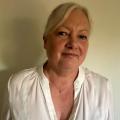
NHS England has called for Southend Clinical Commissioning Group placed in special measures after it ran up a £7million deficit.
The government body says it wants to work closely with the group after it revealed it expected to have the huge shortfall by the end of the financial year.
Rachel Webb, locality director for NHS England Midlands and East, said: “NHS England Midlands and East has made an application to place NHS Southend Clinical Commissioning Group into special measures.
“If approved, this will put additional support in place for the CCG to help make the improvements required.”
In response, Ian Stidston, Accountable Officer at NHS Southend CCG, said: “NHS Southend Clinical Commissioning Group is not currently in special measures. Within Southend we continue to face significant financial challenges, with an on-going rise in demand for services and the associated increase in costs.
"At the beginning of this financial year, in order to meet our financial plan, we identified that we needed to make savings in excess of £18.2 million. As of this month we have identified a risk of £7m within this financial year."
Mr Stidston added: “We have been completely transparent with both our local population and NHS England over the past few years about our increasing financial challenges. NHS England has now expressed a view that we should work more closely together, with NHS England offering additional support to identify potential solutions to these challenges.
“In order to facilitate this, NHS England has made an application to place NHS Southend CCG in special measures. If approved, this would also provide assurance that our agreed action plans are effective and achievable.”
The group has consistently failed to meet targets across a range of services.
A performance report revealed four-hour A&E waiting targets were missed, with just 91.5 per cent of patients being seen against a 95 per cent target.
Cancer treatment waiting times were also missed and a “lack of alternative provision for respiratory patients” had lead to a high number of sick patients ending up in A&E.
The report by Michelle Angell, assistant director of performance and governance, for the clinical commission group’s governing body, said: “The achievement of national and local performance indicators in Southend is currently challenging with local delivery reflecting the national picture.
“The CCG are actively working with community, mental health and acute providers to improve the quality of services delivered and performance across all areas for the benefit of patients.”
It added: “Many of the areas where performance is below target are proving very difficult to move in a positive direction.
“This reflects the fact that many of the pressures are system wide. However, action plans are being reviewed over the period between meetings to enable a realistic assessment of the necessary steps to improvement to be made. “
It added: “Performance will continue to be monitored closely and both clinical and non-clinical leadership will form a key element in ongoing performance management.”
Six beds which had been closed due to staff shortages on Paglesham ward in Southend Hospital would be reopened in time for winter.
The report said ambulance response times “continue to be below standard”.
Plans to rectify the problem “had not been achieved”.
The report said this was due to a high number of “red” callouts and increased 111 calls.
Difficulties in handover times at hospital also impacted the service.
The group came under fire last month after Dr José Garcia Lobera, clinical lead for the group, referred to those affected by a range of cuts to services, including fertility treatment as “collateral damage”.
He later apologised for using the term.



Comments: Our rules
We want our comments to be a lively and valuable part of our community - a place where readers can debate and engage with the most important local issues. The ability to comment on our stories is a privilege, not a right, however, and that privilege may be withdrawn if it is abused or misused.
Please report any comments that break our rules.
Read the rules hereLast Updated:
Report this comment Cancel